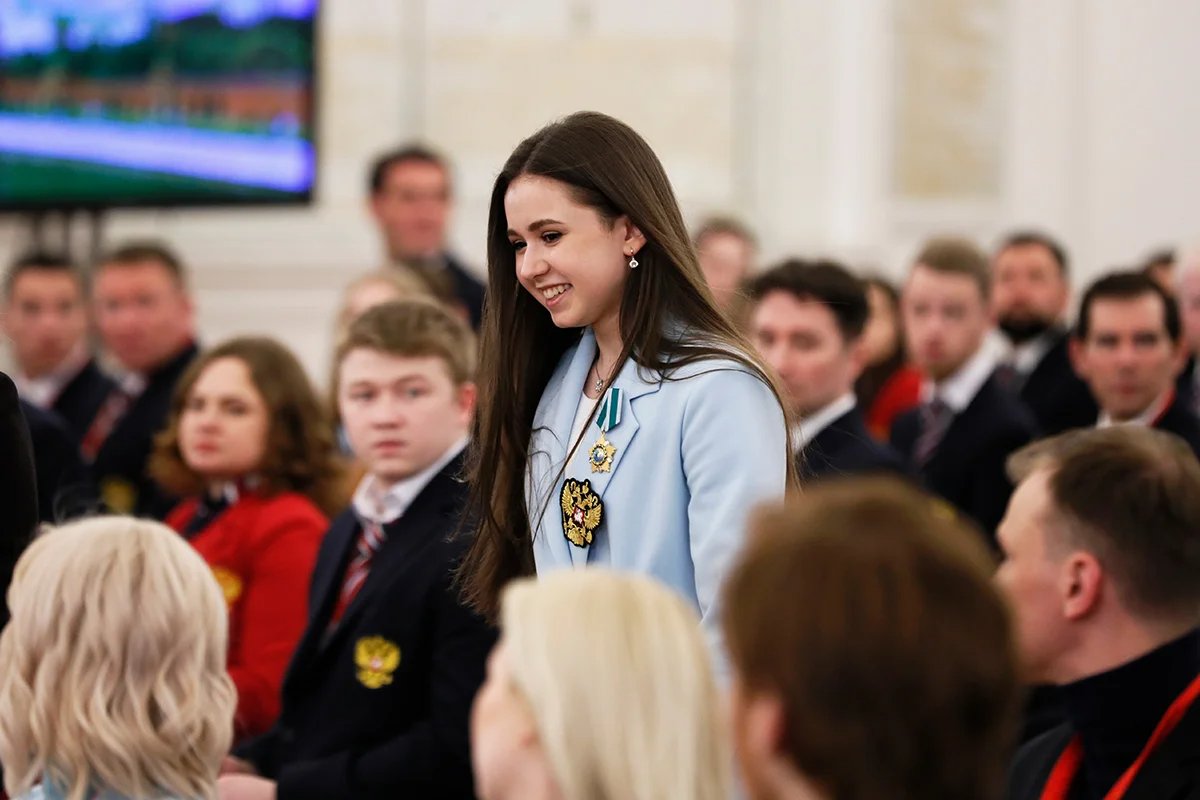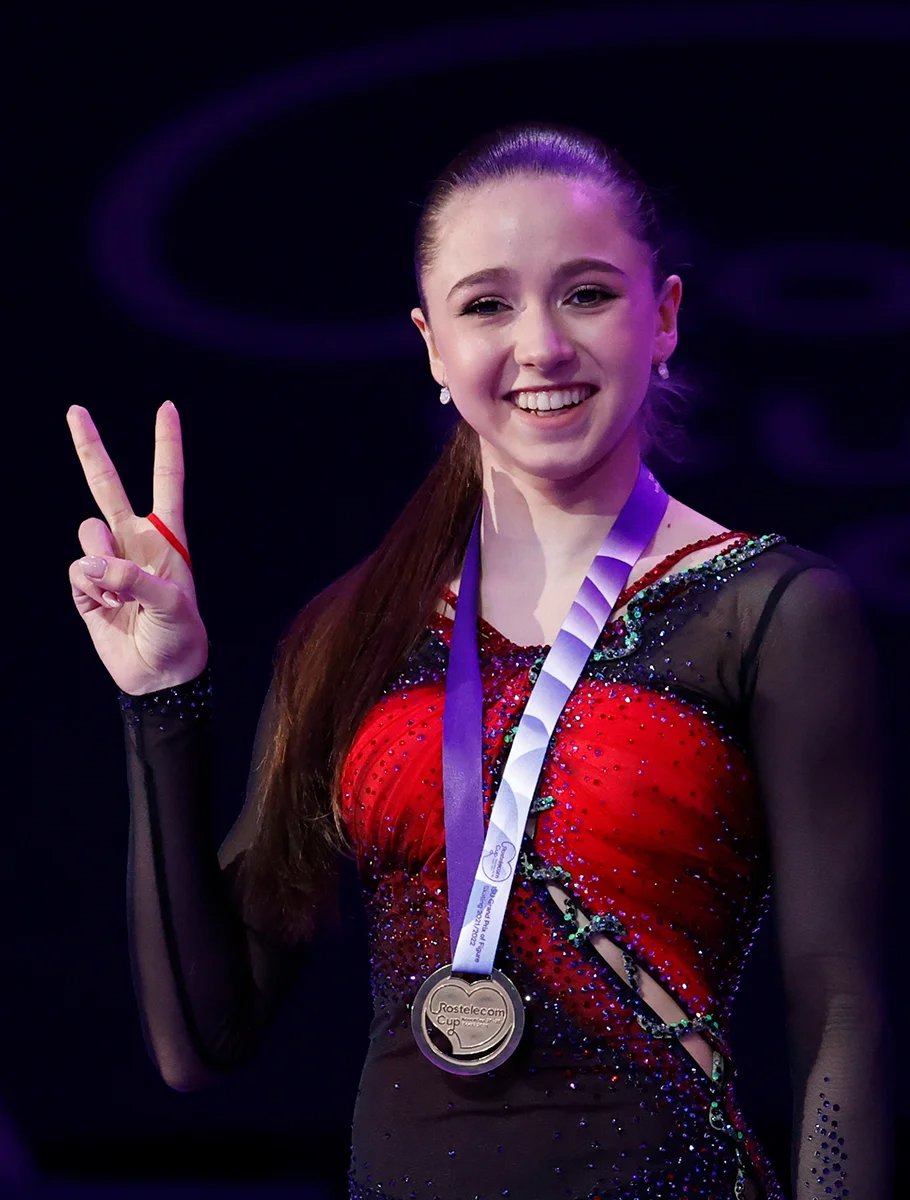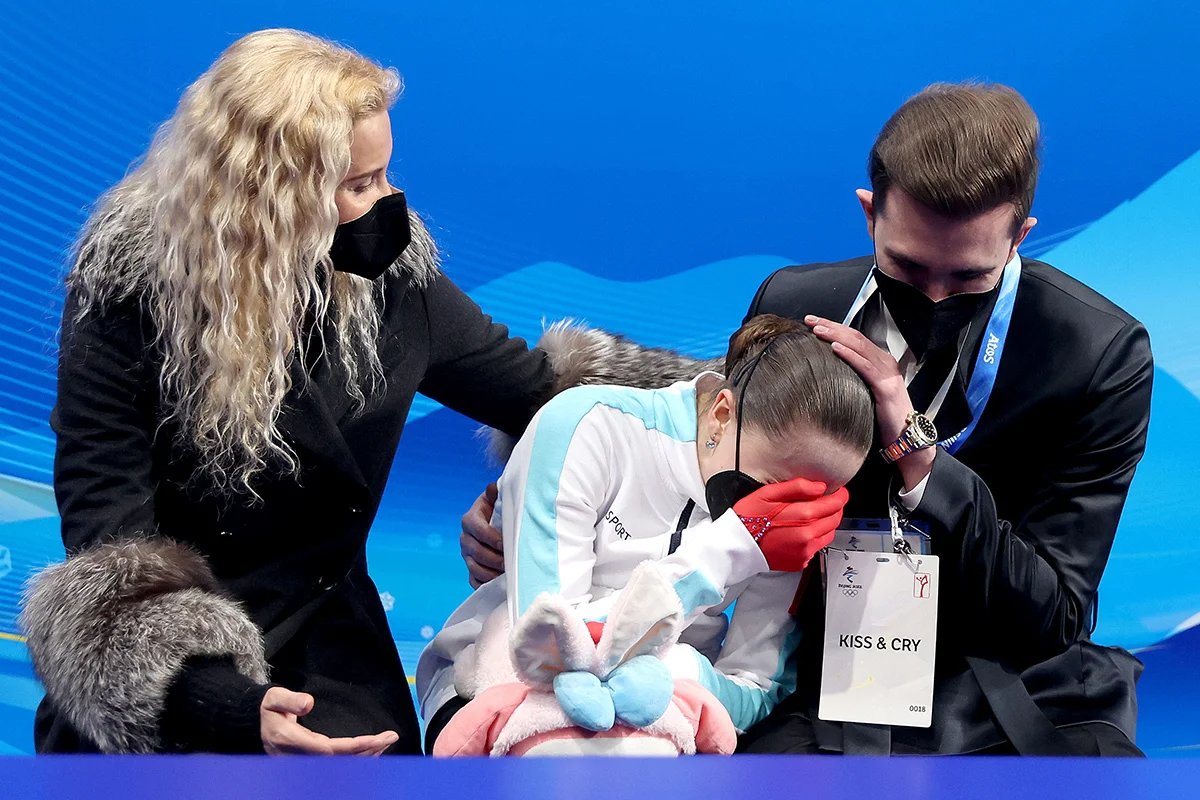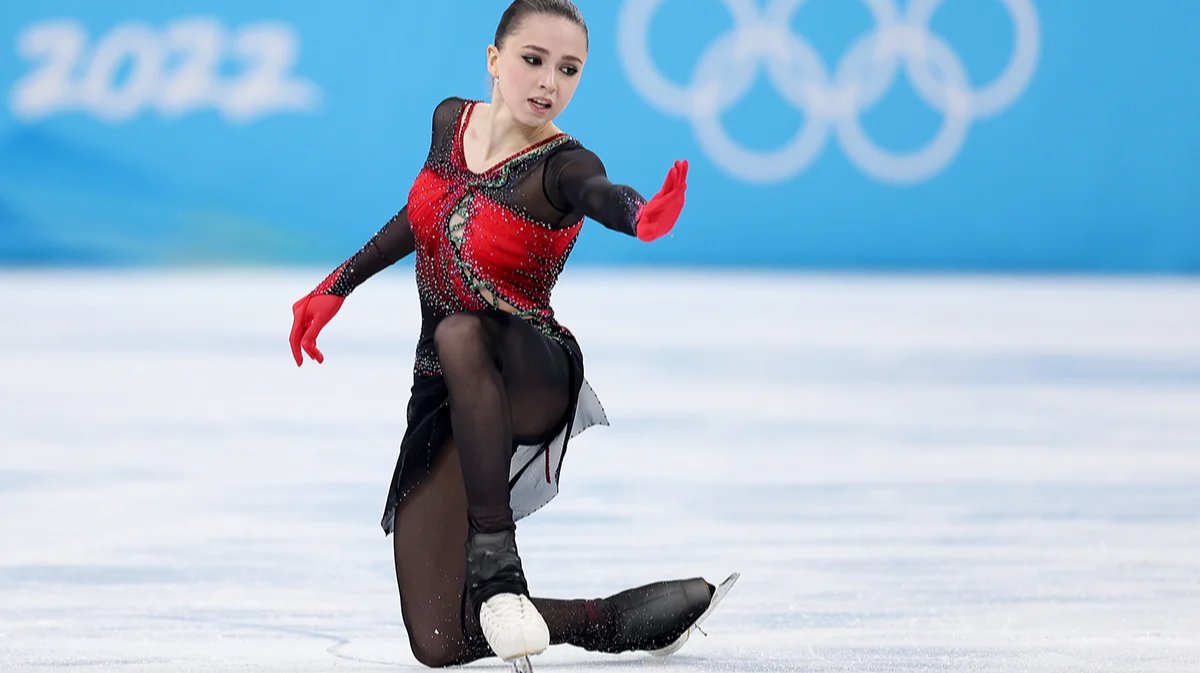Russian figure skater Kamila Valieva, who was banned from the sport for four years and stripped of her titles on Monday for doping, has become yet another rallying cry for the “us against the world” mentality already so prevalent among Russian athletes and coaches.
The news that Valieva had tested positive for Trimetazidine, a medication prescribed for heart conditions and banned in professional sport, was announced just a day after she and the rest of the Russian figure skating team had won gold at the 2022 Winter Olympic Games in Beijing.
The Valieva scandal was particularly embarrassing as it came while Russia was still subject to a four-year ban from international competition that was imposed in 2019 following the disclosure of a massive state-sponsored doping programme by the World Anti-Doping Agency (WADA). The ban meant that Russian athletes were only able to compete under the banner of the Russian Olympic Committee instead of their national flag at the Beijing Olympics.

Kamila Valieva at an award ceremony for Russian medalists after the 2022 Winter Olympic Games in the Kremlin, Moscow, 26 April 2022. Photo: Yury Kochetkov / EPA-EFE
In accordance with the rules, the investigation into Valieva was carried out by the Russian Anti-Doping Agency (RUSADA), a WADA subsidiary. However, RUSADA’s findings that Valieva had not been guilty of any doping infraction were not accepted by WADA, and ultimately led it to take the case to the Court of Arbitration for Sport (CAS), the sport world's top legal authority.
Valieva’s defence
As the evidence of doping was incontrovertible, according to court procedure, it was down to Valieva’s defence team to prove a lack of intent if they hoped to exonerate her.
Valieva’s lawyers argued that the drug had been unintentionally ingested, and claimed that Valieva had eaten a dessert prepared by her grandfather, who was taking heart medicine. The dessert explanation was just one of many — Valieva’s team previously said that she had drunk water from her grandfather’s glass, or that someone had slipped the substance into her food or drink as an act of sabotage.
One story even circulated in the press that Valieva’s dog had brought the forbidden substance into the house on its paws, though that was quickly deemed implausible.
The multiple explanations and a number of loose ends ultimately impacted Valieva’s credibility before the court and the CAS panel eventually announced their guilty verdict on Monday. While the court’s finding is final and binding, Valieva does have a 30-day right to appeal the judgement to the Swiss Federal Tribunal.
Levelling the playing field
The court ruling retroactively banned Valieva from taking part in national or international competitions from 25 December 2021 — the day she submitted her fateful sample — until 24 December 2025, meaning that she will be stripped of all titles, medals and prize money accrued in that time.
Following Valieva’s disqualification, Russian figure skaters Anna Shcherbakova and Alexandra Trusova became European and Russian champions respectively. Zachary Donohue, a member of the US skate team who will now receive gold, said he was “pleasantly surprised that there was no special consideration because of [Valieva’s] age, that she was held to the same standard of every athlete”.

Kamila Valieva poses with her gold medal at the awarding ceremony for the winners of the Rostelecom Cup 2021 Figure Skating Grand Prix in Sochi, 28 November 2021. Photo: Anatoly Maltsev / EPA
The subject of Valieva’s age — she was 15 during the Beijing Olympics — is another controversial issue. Olympic officials had originally allowed her to continue competing despite the positive test, reasoning that she was too young to be held responsible. The International Ice Skating Federation is now raising the minimum age required to compete internationally from 15 to 17 years old.
After the verdict, WADA said that someone in Valieva’s team should be held accountable, stressing that the “doping of children is unforgivable”.
The organisation is now calling for legislation to allow the prosecution of doctors, coaches, or any other support staff found to have provided performance-enhancing substances to minors.
Sports journalist and Soviet Olympic diving champion Yelena Vaytsekhovskaya echoed the narrative that athletes were victims of a culture that enables and encourages doping, saying that the problem lay with the “utterly inexcusable negligence” of those coaching Russian athletes. “Is their guilt in this situation really less than Valieva’s, who received a four-year ban?” Vaytsekhovskaya wondered.
None of these very valid questions have been answered in the course of the two-year investigation into Valieva, most crucially, why the Russian figure skating team hired a doctor who had previously been suspended for personally administering performance enhancing drugs to six rowers.
Russia’s response
Should Valieva comply with the WADA regulations for disqualified athletes, she would have to forgo all national and international competition. However, given the siege mentality that pervades the Russian sporting community and Russian society as a whole, it’s likely that Valieva’s disqualification will simply be ignored at the national level.

Kamila Valieva with choreographer Daniil Gleichengauz (right) and coach Eteri Tutberidze (left) after the women’s free skate competition at the 2022 Winter Olympics in Beijing, 17 February 2022. Photo: Matthew Stockman / Getty Images
Members of the Russian figure skating community were quick to label the ruling as politically motivated, with Valieva’s age only serving to add fuel to the fire.
Renowned Russian figure skating coach Tatyana Tarasova reacted to the verdict by calling the international sporting bodies involved “scoundrels and criminals”, adding that they were “cursed, filthy pigs, taking out all the anger they have for our country on a little girl”.
Likewise, Kremlin spokesperson Dmitry Peskov described the decision as “politicised” and stressed that the Kremlin neither agreed with the court ruling nor accepted it.
The predictable reaction of both Russia’s authorities and figure skating community suggests that Kremlin-pushed narratives of Russian victimhood remain as strong as ever in the country.
This would make it harder for the public to accept the court’s decision, Vaytsekhovskaya said, adding that Valieva was likely to compete in Russia as if nothing had happened, which would ultimately make it even harder for Russia to return to the international sporting arena, concluding: “It hurts to be humbled, but you have to know how to lose.”
Join us in rebuilding Novaya Gazeta Europe
The Russian government has banned independent media. We were forced to leave our country in order to keep doing our job, telling our readers about what is going on Russia, Ukraine and Europe.
We will continue fighting against warfare and dictatorship. We believe that freedom of speech is the most efficient antidote against tyranny. Support us financially to help us fight for peace and freedom.
By clicking the Support button, you agree to the processing of your personal data.
To cancel a regular donation, please write to [email protected]

